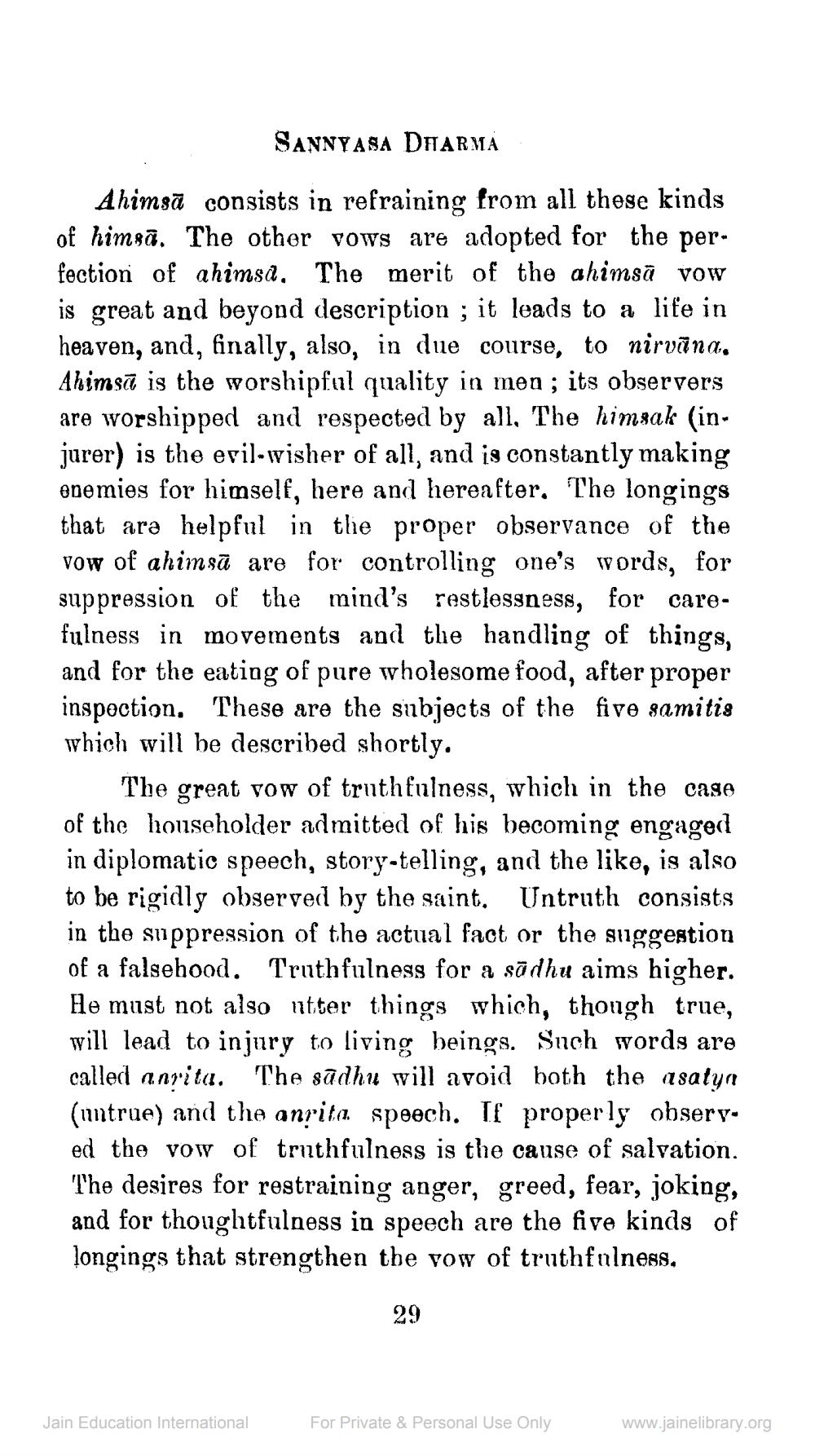________________
SANNYASA DHARMA
Ahimsa consists in refraining from all these kinds of himsā. The other vows are adopted for the perfection of ahimsa, The merit of the ahimsa vow is great and beyond description ; it leads to a life in heaven, and, finally, also, in due course, to nirvana, Ahimsa is the worshipful quality in men; its observers are worshipped and respected by all. The himsak (injurer) is the evil-wisher of all, and is constantly making enemies for himself, here and hereafter. The longings that are helpful in the proper observance of the vow of ahimsā are for controlling one's words, for suppression of the mind's restlessness, for carefulness in movements and the handling of things, and for the eating of pure wholesome food, after proper inspection. These are the subjects of the five gamitis which will be described shortly.
The great vow of truthfulness, which in the case of the householder admitted of his becoming engaged in diplomatic speech, story-telling, and the like, is also to be rigidly observed by the saint. Untruth consists in the suppression of the actual fact or the suggestion of a falsehood. Truthfulness for a sādhu aims higher. He must not also atter things which, though true, will lead to injury to living beings. Such words are called anrita. The sadhu will avoid both the asatyn (mmtrue) and the anrita. speech. If properly obseryed the vow of truthfulness is the cause of salvation. The desires for restraining anger, greed, fear, joking, and for thoughtfulness in speech are the five kinds of longings that strengthen the vow of truthfulness,
29
Jain Education International
For Private & Personal Use Only
www.jainelibrary.org




